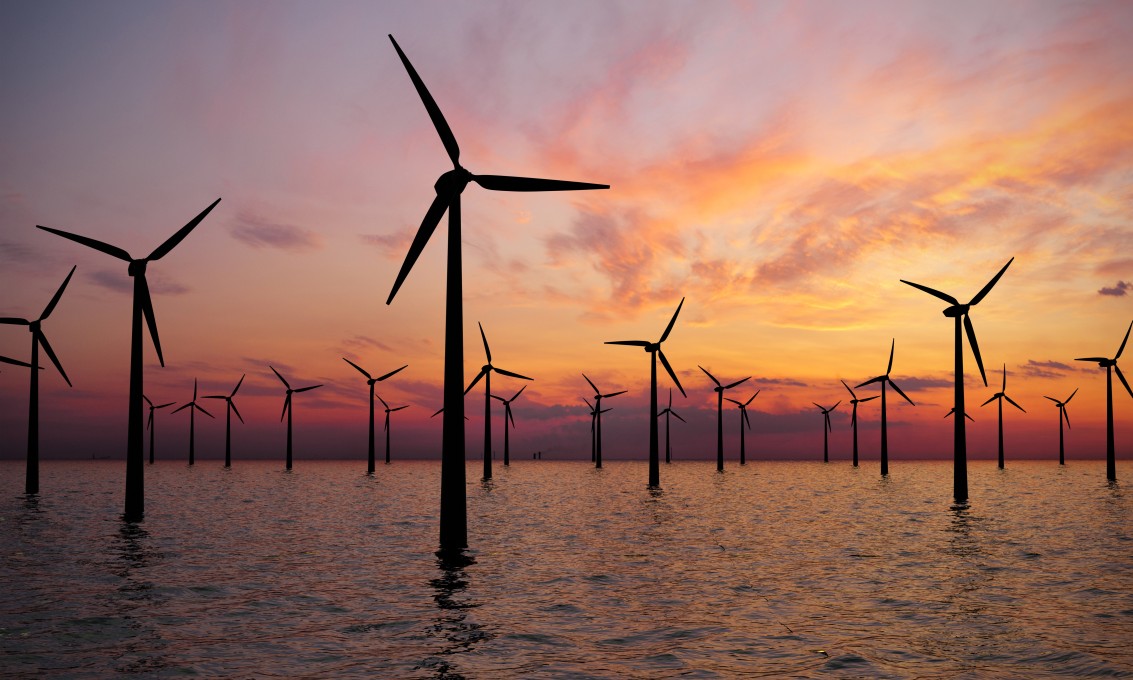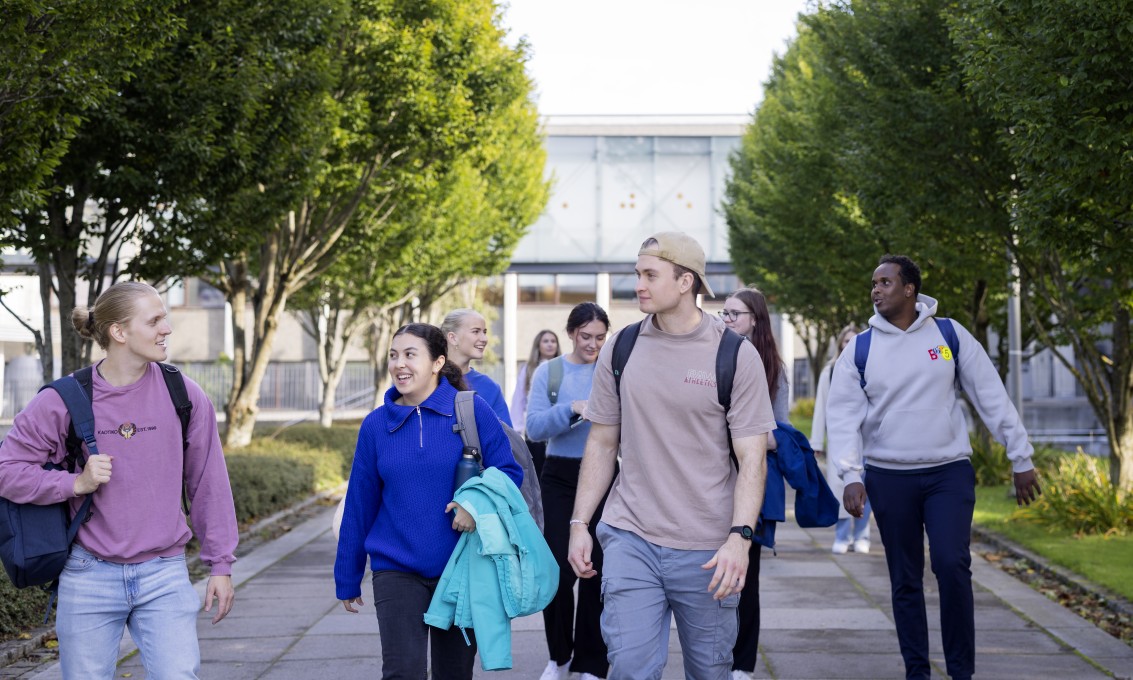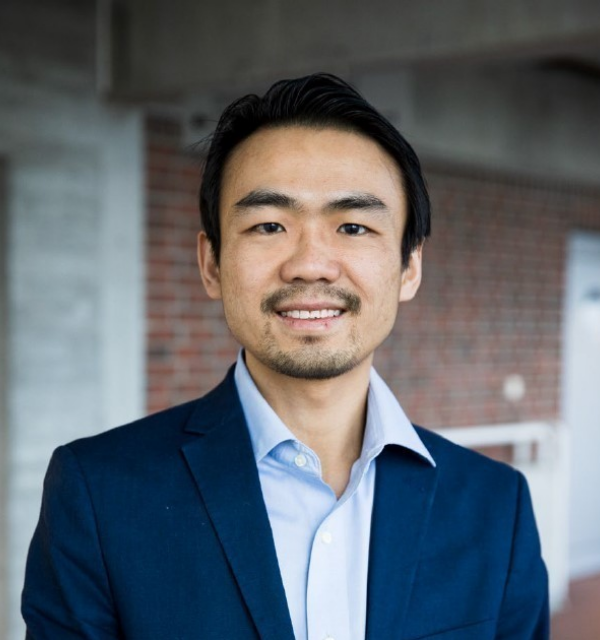The world needs engineers to develop smart and sustainable technologies for the marine and offshore industries. Would you like to contribute to the green transition and the future of the blue economy?
2 years (4 semesters)
English
August every year

About the study programme
The oceans and seas play a crucial role as a primary provider of food, energy, and minerals. 40% of the world's population lives near the coast, and over 3 billion people directly rely on the oceans for their subsistence through fisheries and aquaculture, along with the processing and trade activities associated with ocean resources. The world, therefore, needs engineers to develop innovative and green technologies for the responsible and sustainable utilisation of ocean resources.
- In this programme you will gain key knowledge in the field of marine technology.
- You will learn about marine and offshore structures, subsea production, offshore aquaculture, offshore renewable energy and fjord crossings.
- After graduating you are well-equipped to participate in developing new technology, methods and best practices for the marine, offshore and subsea industries.
Career prospects
The Marine and Offshore Technology master's programme at the University of Stavanger prepares its graduates holistically for challenging and rewarding careers in all activities in the marine, offshore and subsea industries. The supply of marine, offshore and subsea equipment and services is currently Norway's second largest industry after oil and gas export. More than 1 250 companies supply goods and services for all stages of the value chain in Norway. This includes floating offshore structures, drilling rig equipment, equipment for the shipyard industry, advanced offshore supply and service vessels, and subsea technology. Norwegian companies are key industrial players in all international markets for subsea and deep-water technologies. The offshore activities off the Norwegian coast and in the arctic regions are also expected to grow significantly.
Our graduates are highly sought after in a broad spectrum of companies covering:
- Oil and gas exploration and production companies
- Ocean renewables energy (incl. offshore wind) companies
- Ship and offshore structures construction companies
- Subsea production equipment manufacturers
- Subsea installation service providers
- Specialized design houses
- Classification societies
Candidates can also work at research institutes.
A completed master's degree may qualify for admission to relevant engineering PhD programmes, e.g. Mechanical Engineering, Offshore Structures, Marine Technology and Civil Engineering.
Learning outcomes
All study programmes at the UiS have a set of defined learning targets. Read more about the learning outcome for this study programme.
After having completed the master's programme in Marine and Offshore Technology, the student shall have acquired the following learning outcomes in terms of knowledge, skills and general competencies:
Knowledge
K1: The candidate has advanced knowledge of marine and offshore technology. The candidate can combine mechanical engineering, structural engineering and marine technology to give specialised insight into systems and operations.
K2: The candidate has thorough knowledge about the safety and environmental aspects of his/her academic field and knows how to implement this knowledge in his/her professional work by developing technical solutions suited to the best of society and individuals.
K3: The candidate can apply knowledge to new areas within the academic field.
K4: The candidate can analyse academic problems based on the history, traditions, distinctive character and place in the society of the academic field.
K5: The candidate has knowledge about general ethical aspects in the engineering discipline.
Skills
S1: The candidate can analyse and use existing theories, methods and interpretations in the field and work independently on practical and theoretical problems.
S2: The candidate can use relevant methods for research and scholarly work in an independent manner.
S3: The candidate can analyse and deal critically with various sources of information and use them to structure and formulate scholarly arguments. The candidate can identify state of the art for technology and relevant national and international standards within relevant disciplines.
S4: The candidate can carry out an independent, limited research or development project under supervision and according to applicable research ethics norms.
General Competence
G1: The candidate can analyse relevant academic problems and be qualified to participate in developing and implementing new technology, methods and principles for the marine, offshore and subsea industries.
G2: The candidate can apply knowledge and skills in new areas to carry out advanced assignments and projects and has the relevant knowledge, in general, of marine, offshore and subsea projects.
G3: The candidate can communicate extensive independent work and master the language and terminology of the academic field.
G4: The candidate can communicate about academic issues, analyses, and conclusions in the field, both with specialists and the general public.
G5: The candidate can contribute to new thinking and innovation processes.
Study plan and courses
Enrolment year: 2025
-
Compulsory courses
-
Introduction to Computational Fluid Dynamics
Year 1, semester 1
-
Oceanography
Year 1, semester 1
-
Offshore Field Development
Year 1, semester 1
-
Engineering Mathematics and Dynamics
Year 1, semester 1
-
Mechanics of Solids, Advanced Course
Year 1, semester 2
-
Marine Technology and Design
Year 1, semester 2
-
Master's Thesis in Marine and Offshore Technology
Year 2, semester 3
Master's Thesis in Marine and Offshore Technology (MARMAS)
Study points: 30
-
-
Recommended electives 2nd semester
-
Plastic Analysis of Structures
Year 1, semester 2
-
Smart Operations, Maintenance and Industrial Logistics
Year 1, semester 2
Smart Operations, Maintenance and Industrial Logistics (IAM510)
Study points: 10
-
Offshore Materials Technology
Year 1, semester 2
-
Pipelines and Risers
Year 1, semester 2
-
-
Courses not related to mathematics and natural sciences
-
Decision Analysis in Excel
Year 1, semester 2
-
Project Cost Estimation and Risk Analysis
Year 1, semester 2
-
Risk Assessment, Economic Evaluation and Decisions
Year 1, semester 2
Risk Assessment, Economic Evaluation and Decisions (RIS525)
Study points: 10
-
-
Choose one course in 3rd semester
-
Applied Computational Fluid Dynamics for Industrial Processes
Year 2, semester 3
Applied Computational Fluid Dynamics for Industrial Processes (MSK600)
Study points: 5
-
Offshore Wind Turbine Engineering
Year 2, semester 3
-
-
3rd semester at UiS or exchange studies
-
3rd semester at UiS
-
Compulsory courses 3rd semester
-
Subsea Technology
Year 2, semester 3
-
Marine Operations
Year 2, semester 3
-
Specialisation project in Marine and Offshore Technology
Year 2, semester 3
Specialisation project in Marine and Offshore Technology (OFF680)
Study points: 5
-
-
-
Exchange studies 3rd semester
-
Academic requirements
A bachelor’s degree within one of the following disciplines or equivalent degree is required: Mechanical engineering, civil/structural engineering, marine engineering, offshore engineering, subsea engineering, process engineering, materials engineering, energy- and petroleum engineering.
Applicants must have the equivalent of 25 ECTS credits in mathematics, 5 ECTS credits in statistics and 7,5 ECTS credits in Physics.
Admission to this master's programme requires a minimum grade average comparable to a Norwegian C (according to ECTS Standards) in your bachelor's degree. Applicants with a result Second-class lower Division or lower are not qualified for admission.
Application and admission
Contact
For inquiries regarding admission to international Master's programmes, send an email to: admissions@uis.no
Student life at UiS
Student exchange
By going on exchange to one of our partner institutions abroad as part of your studies, you will have an opportunity to get a unique education. In addition to improving your career opportunities, you grow as a person and gain the ability to greater reflect on the topics you study as part of your degree.
Schedule for the exchange
Students can study abroad during the 3rd semester of the master's programme in Marine and Offshore Technology.
Students who study abroad must receive approval for courses abroad which can replace the mandatory courses. The remaining ECTS can be chosen among courses similar to the master's programme specialization during the exchange semester. The Department must approve the courses you want to take abroad. It is important that the subjects/ courses from abroad do not overlap with subjects you have already taken. Some advice is to think about your specialisation and your field of interest. Please note that you must have passed at least 5ECTS non-science/technology courses within your second or third semester. If you did not fulfill this requirement in your second semester, you must choose a non-science/technology in your exchange semester.
For courses abroad, please contact the study program leader.
More opportunities
In addition to the recommended universities listed below, UiS has several agreements with universities outside Europe that apply to all students at UiS, provided that they find a relevant subject offering. Within the Nordic region, all students can use the Nordlys and Nordtek networks.
Contact your Study Adviser at the Faculty if you have questions about guidance and pre-approval of courses:
General questions about the exchange:
Go to the exchange guide in the Digital student service desk
See where you can travel
Contact us
Faculty Administration TN
Kontor for utdanningsadministrative tjenester
Department of Mechanical and Structural Engineering and Materials Science




